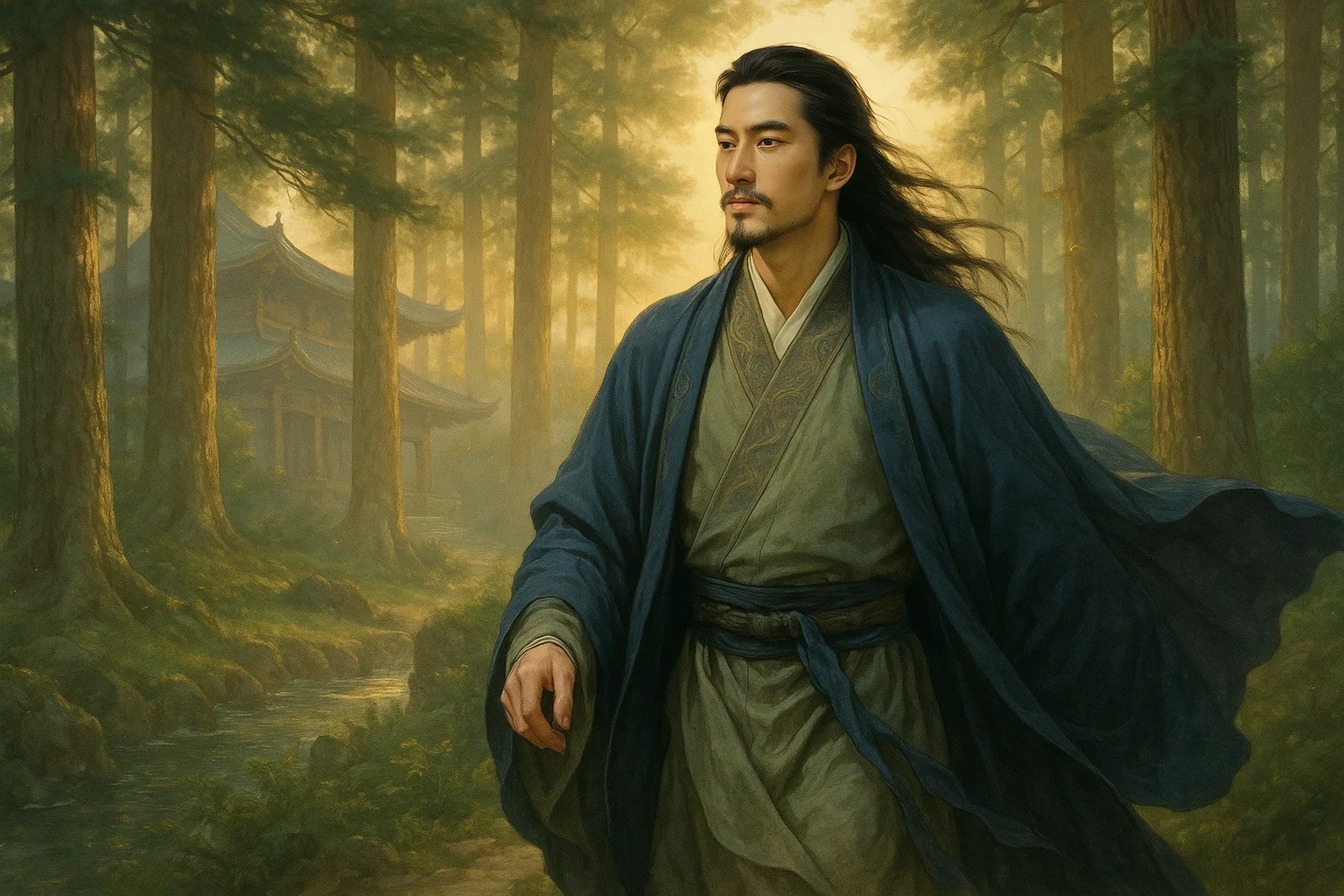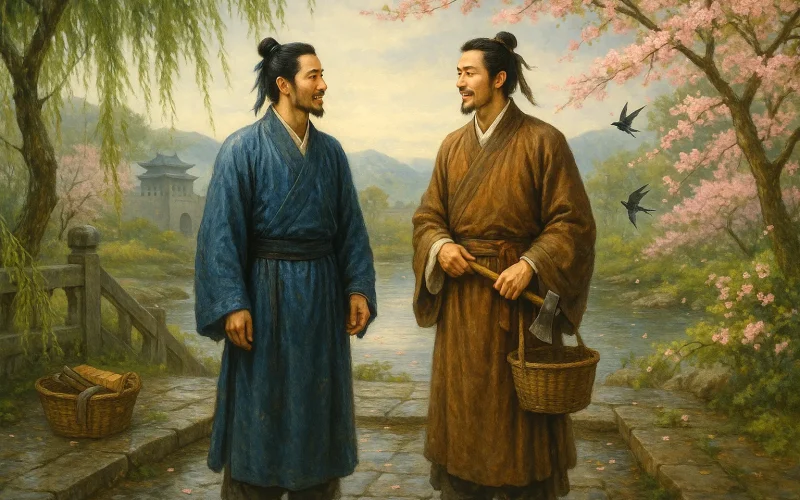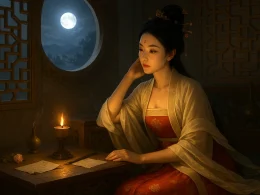As I walk in the cool of the autumn night,
Thinking of you, singing my poem,
I hear a mountain pine-cone fall...
You also seem to be awake.
Original Poem
「秋夜寄邱员外」
韦应物
怀君属秋夜,散步咏凉天。
空山松子落,幽人应未眠。
Interpretation
Composed during Wei Yingwu's official service on an autumn evening, this poem reflects his constant longing for recluse-friend Qiu Dan amidst bureaucratic life. The work emerges from a solitary nighttime stroll where autumn's chill and stillness inspired tender remembrance. Without ornate diction, it connects their friendship across distance through shared nocturnal imagery. Deeply moved upon receiving it, Qiu responded with a matching verse—testament to their profound bond.
First Couplet: "怀君属秋夜,散步咏凉天。"
Huái jūn shǔ qiū yè, sànbù yǒng liáng tiān.
Missing you—this autumn night's domain; Strolling, I chant the cooling air's refrain.
The opening establishes the dual framework: autumnal atmosphere ("cooling air") and contemplative action ("strolling/chanting"). "Missing you" (怀君) centers the emotional axis while "autumn night" (秋夜) provides the temporal-spiritual theater for this communion.
Second Couplet: "空山松子落,幽人应未眠。"
Kōng shān sōngzǐ luò, yōu rén yīng wèi mián.
In empty mountains, pinecones descend; The hermit surely stays awake to tend.
Wei's imagination bridges physical separation—the audible "pinecones falling" in distant hills become spiritual telegraphy. The deduction "surely stays awake" (应未眠) transforms observation into intimate certainty, creating shared wakefulness beneath the same stars.
Holistic Appreciation
This four-line miniature achieves remarkable depth through spatial choreography: the first couplet's grounded reality (strolling poet) expands into the second's imagined landscape (recluse's mountain). The "pinecones falling"—both auditory detail and temporal marker—symbolize nature's quiet communications between kindred spirits. Avoiding explicit sorrow, the poem radiates serene connection where most would emphasize absence, exemplifying Tang poetry's ability to compress vast emotional geographies into crystalline moments.
Artistic Merits
This poem demonstrates concise yet ingenious composition, particularly excelling in using stillness to accentuate emotion. "Pine cones falling in empty mountains" is an intensely visual depiction, both concrete and richly symbolic, hinting at time's passage and the mountain's solitude. Meanwhile, "the recluse must still be awake" allows readers to almost hear the distant friend's thoughts. The entire poem skillfully blends the imagined with the real, combining far and near perspectives to reveal profound feelings within seemingly plain expressions, perfectly embodying the quintessential spirit of High Tang landscape poetry.
Insights
The poem suggests true friendship transcends physical separation through synchronized perception—when Wei hears pinecones, he hears Qiu's wakefulness. For contemporary readers living in digital saturation, it offers an ancient model of analog connection: attentiveness to natural signs as vessels for human bonds. The "cooling air" becomes their messaging system, reminding us that intimacy thrives not in constant contact but in shared sensitivity to the world's quiet languages.
Poem translator
Kiang Kanghu
About the poet

Wei Yingwu (韦应物) was a native of Xi'an from about 737 to 786 AD. As a young man, he was chivalrous and unrestrained. His poems were concerned with the hardships of the people, expressed his indignation against the world, and described the scenes in the countryside, etc. His language was simple and light, and his style was beautiful and clear, and he was most famous for describing the scenes in the countryside.












